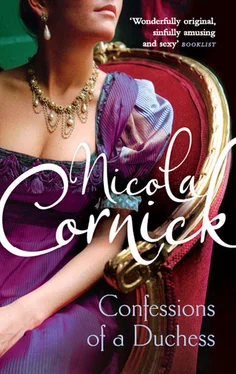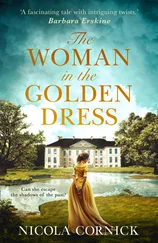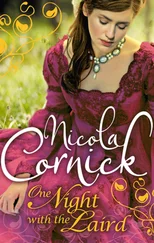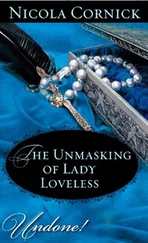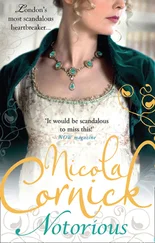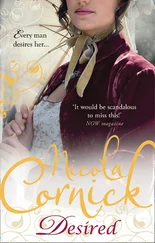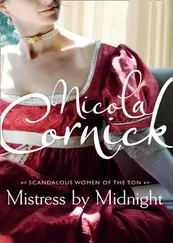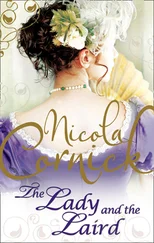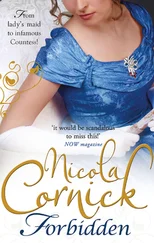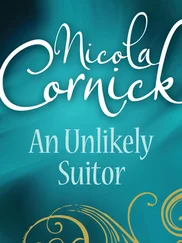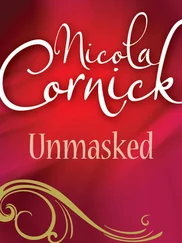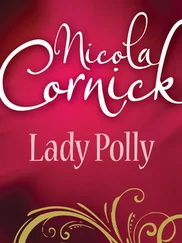Nicola Cornick - Confessions of a Duchess
Здесь есть возможность читать онлайн «Nicola Cornick - Confessions of a Duchess» — ознакомительный отрывок электронной книги совершенно бесплатно, а после прочтения отрывка купить полную версию. В некоторых случаях можно слушать аудио, скачать через торрент в формате fb2 и присутствует краткое содержание. Жанр: unrecognised, на английском языке. Описание произведения, (предисловие) а так же отзывы посетителей доступны на портале библиотеки ЛибКат.
- Название:Confessions of a Duchess
- Автор:
- Жанр:
- Год:неизвестен
- ISBN:нет данных
- Рейтинг книги:3 / 5. Голосов: 1
-
Избранное:Добавить в избранное
- Отзывы:
-
Ваша оценка:
- 60
- 1
- 2
- 3
- 4
- 5
Confessions of a Duchess: краткое содержание, описание и аннотация
Предлагаем к чтению аннотацию, описание, краткое содержание или предисловие (зависит от того, что написал сам автор книги «Confessions of a Duchess»). Если вы не нашли необходимую информацию о книге — напишите в комментариях, мы постараемся отыскать её.
Confessions of a Duchess — читать онлайн ознакомительный отрывок
Ниже представлен текст книги, разбитый по страницам. Система сохранения места последней прочитанной страницы, позволяет с удобством читать онлайн бесплатно книгу «Confessions of a Duchess», без необходимости каждый раз заново искать на чём Вы остановились. Поставьте закладку, и сможете в любой момент перейти на страницу, на которой закончили чтение.
Интервал:
Закладка:
Sir Montague nodded, eyes bright.
“How?” Dexter demanded. “Why?”
“I told you.” Sir Montague’s greedy gaze swept the group. “Medieval laws. Because Fortune’s Folly belonged to the church it was exempt when the secular laws were repealed in the seventeenth century. I discovered quite by accident that all the tithes and taxes are still applicable. In recent centuries they have not been collected only through the goodwill of the squire.”
“And you do not have any goodwill,” Nat said dryly.
“Not now that Miss Lister has refused me,” Sir Montague said, the virtuous expression on his face sitting oddly with the avarice in his eyes. “Had she accepted me I am sure that I would have been the most generous of village squires.”
“And one of the richest,” Dexter murmured.
“Every single woman…Half their fortunes…” Nat Waterhouse was spluttering into his brandy. “That’s…” His mathematical ability, never strong, failed him. “That’s potentially a huge amount of money, Monty!” he protested.
“I know.” With a self-satisfied smile, Sir Montague settled back in his chair. “I have not quite worked it out yet but Miss Lister’s fortune is rumored to be in the region of eighty thousand pounds and Mrs. Everton pocketed a cool fifty thousand under the terms of her husband’s will—”
Miles shot him a sharp glance. “It applies to widows as well as spinsters?”
“All unmarried women,” Sir Montague confirmed.
“But I have a cousin living in Fortune’s Folly,” Miles protested. “You can’t fleece her, Monty! It’s not socially acceptable, old fellow—not acceptable at all!”
Dexter raked a hand through his disordered tawny hair in a characteristic gesture. “Presumably if the ladies of Fortune’s Folly choose to marry they are exempt from the tax?”
Sir Montague nodded. “That’s it, Dexter. Got it in one. I can see why the government employs you.”
Dexter’s lips twitched. “Thank you, Monty. I am glad that my powers of deduction are still as acute as I thought. So.” He paused. “You announce the introduction of the Dames’ Tax and the ladies of Fortune’s Folly have to decide whether they wish to give away half of their money to you in tax or all of it to their husbands in marriage.”
Nat winced. “They will be as mad as wet hens to be forced into this situation, Monty. I hope you are prepared.”
Sir Montague shrugged expansively. “They can’t do anything about it. The law is on my side. I tell you, the plan is perfect.”
The others exchanged looks. “Monty, old chap,” Miles said softly, “much as I disapprove of your avarice, I do believe that you have just made Fortune’s Folly a veritable marriage mart, a positive haven for those of us who are—”
“Impecunious,” Dexter said. “Improvident, penurious—”
“Flat broke,” Nat said, “and looking for a rich wife.”
“You’re right,” Sir Montague said, beaming. “I have made Fortune’s Folly the marriage mart of England!”
Chapter One
Fortune’s Folly, Yorkshire, September 1809
DOWAGER. It was such a lonely word.
Most people thought of dowagers as faintly comic figures, diamonds displayed on their shelflike bosom, possessing a long, patrician nose to look down.
Laura Cole thought of dowagers as the loneliest people in the world.
It was Laura’s loneliness that had prompted her to go down to the river that day, dressed in a pale blue muslin gown with a warm navy-blue spencer over the top, a wide-brimmed straw bonnet on her head and a novel in her hand. She had read somewhere that the beauties of nature were supposed to soothe a troubled spirit and so she had decided to take the rowing boat out and float in bucolic peace under the willow branches that fringed the water’s edge.
However, the nature cure was proving to be a disappointing failure. For a start the boat was full of fallen yellow leaves, and once Laura had brushed them off the seat her gloves were already dirty. She sat down and opened her book, but found herself unable to concentrate on the trials and tribulations of her heroine because her mind was full of her own difficulties instead. Every so often, golden-brown leaves would float down and adorn the page. The wind was surprisingly chilly. Laura frowned at her lack of attentiveness and tried all the harder to enjoy herself.
Laura loved the countryside. She had grown up in this wild Yorkshire landscape and had lived in the county for much of her life, though she had spent the previous two years in London. She had hoped that returning to her childhood home would lessen the feeling of emptiness that dogged her steps these days, but it had not, and she could not understand it. It was not as though she was alone in the world. She adored her three-year-old daughter, Harriet, and spent an unfashionable amount of time with her. Fortune’s Folly was a busy little village and she had made many new friends there. And she also had a huge extended family with a tribe of cousins in every rank of the Ton . It was not even the case that she missed her late husband, Charles, for they had lived apart for the majority of their marriage. She had been shocked when Charles had died, of course. All of Society had been shocked that a man could be so profligate that he overturned his curricle and killed three of his mistresses as well as himself. But Laura had not missed the errant duke. She had felt enormous relief when she had heard that he had died.
Relief.
Guilt.
Excitement.
She had felt a thrill of anticipation that she and Hattie were free and then she had felt guilty again and lonelier than she had ever done in her life.
It was to forge a future for herself and Hattie that Laura had come to Fortune’s Folly. She wanted her daughter to grow up in the country, so after a year of formal mourning she had left London, where people insisted on trying to commiserate with her about Charles’s death, and had come to this Yorkshire village near to Skipton, where her grandmother had left her a modest house, The Old Palace. It sounded grand but Laura privately thought that it should have been renamed Old Place rather than Palace because it was an ancient and inconvenient medieval building no doubt suited to a not-so-ancient but impoverished dowager duchess who was trying to make a new start in life. Her brother and sister-in-law had pressed her to live with them but Laura had a vision of what that would be like—the dowager aunt taken in through charity, deferring to her brother’s will at every turn—and she knew that even solitary poverty had to be better than genteel dependence. Hattie’s situation would be even more intolerable than her own as she grew up as a poor relation. It was not to be borne. Skimping and scraping, growing her own fruit and vegetables, keeping bees, making and mending, just herself and Hattie and a few servants had to be preferable to being her brother’s pensioner.
Her daughter was a constant joy and revelation to her. And though she sometimes wished that Hattie had brothers or sisters with whom to share her childhood, Laura thought this wildly unlikely now. In order to have more children she would need to take a new husband and it would take an exceptional man to persuade her into marriage again after her experience with Charles. She and Hattie would fend quite well for themselves and soon, she was sure, her feelings of isolation would start to fade. She did not want her melancholy to affect Hattie. Hattie was such a happy child.
She cast the book aside and untied the mooring rope. Since she could not seem to concentrate on reading, she would take the boat for a short row on the river. Physical activity would help to occupy her and she could admire the autumnal countryside at the same time. She pushed the boat off from the bank and sat back to enjoy the gentle flow of the river.
Читать дальшеИнтервал:
Закладка:
Похожие книги на «Confessions of a Duchess»
Представляем Вашему вниманию похожие книги на «Confessions of a Duchess» списком для выбора. Мы отобрали схожую по названию и смыслу литературу в надежде предоставить читателям больше вариантов отыскать новые, интересные, ещё непрочитанные произведения.
Обсуждение, отзывы о книге «Confessions of a Duchess» и просто собственные мнения читателей. Оставьте ваши комментарии, напишите, что Вы думаете о произведении, его смысле или главных героях. Укажите что конкретно понравилось, а что нет, и почему Вы так считаете.
